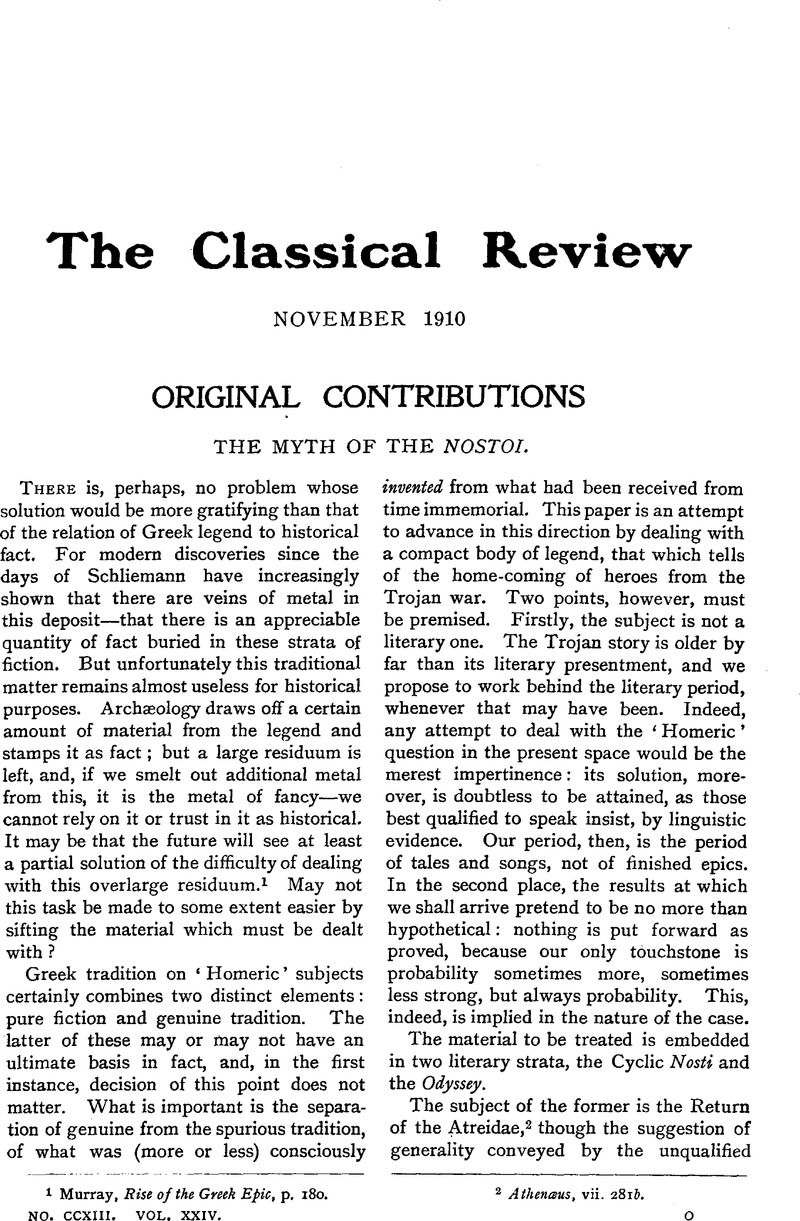No CrossRef data available.
Article contents
The Myth of the Nostoi
Published online by Cambridge University Press: 27 October 2009
Abstract

- Type
- Original Contributions
- Information
- Copyright
- Copyright © The Classical Association 1910
References
page 201 note 1 Murray, , Rise of the Greek Epic, p. 180.Google Scholar
page 201 note 2 Athenæus, vii. 281b.
page 202 note 1 See abstract after Proclus, Kinkel, , Ep. Graec. Fragm. p. 52–53.Google Scholar
page 202 note 2 See Monro, , Odyssey xiii-xxiv. p. 379, for true sense of this passage.Google Scholar
page 202 note 3 Op. cit. p. 381.
page 202 note 4 Ib.
page 202 note 5 Even should the contrary be proved, the argument of this paper would still stand.
page 202 note 6 Op. cit. 380.
page 202 note 7 Monro, , op. cit. 381.Google Scholar
page 202 note 8 Par. 1796, 53 (quoted by Monro, ).Google Scholar
page 203 note 1 As Wilamowitz remarks (Hom, untersuch. p. 12), ‘der alte Nostos weiss nichts von anderm Nosten, er kennt keine andern irrenden helden….’
page 203 note 2 There is nothing to show that these ‘general nostoi’ include more than the Returns of the Atreidae (and, of course, of Nestor).
page 203 note 3 Similarly, the story is new to Telemachus at Pylos (γ. 248), though he has already heard the song of Phemius at Ithaca (α. 325–327).
page 203 note 4 This question is actually asked by Telemachus, knowing nothing of the matter, of Nestor (γ. 259).
page 203 note 5 The Cyclic poet seems to have made the same mistake, and wasted his space on the wanderings rather than the homecomings of the heroes. He would seem to have treated the latter as simply the concluding incidents to the former.
page 204 note 1 Op. cit. 290.
page 204 note 2 As Monro seems to hint, p. 291.
page 204 note 3 Monro, , op. cit. pp. 301–303.Google Scholar


